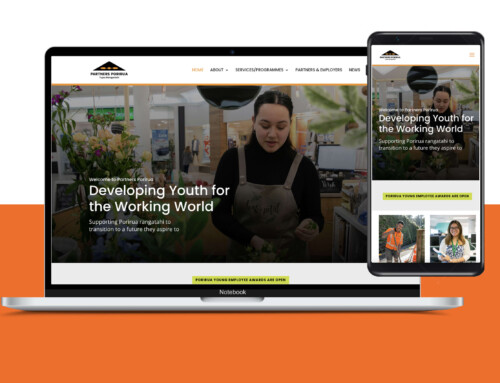ChatGPT – staring the future in the face
By Angela Bensemann, Director Halo Communications
Photo credit: Brett Jordan on Unsplash
Words are my life. Actually, that sounds a bit overly dramatic, but you get the gist. I am a communicator by trade – it’s what I do. It started with reading before I went to school, I wrote the Bunnykin News when I was about 11 and worked holiday jobs in the local newspaper through school.
I studied English literature and journalism and worked as a journalist for a few years before moving into the broader field of communications.
So you get the picture – writing is what I do. I’m also a bit of a technophobe, I’m not a natural adopter of new-fangled things.
So when everyone started talking about ChatGPT recently I thought I better find out more. After all, if the robots are going to take over our jobs, we should check out the competition and maybe even make friends with said robots.
So ChatGPT I’ve checked you out, and to say I am impressed would be an understatement. Turns out AI is actually quite clever – who knew!
I asked for ’10 top tips for communicating well’. The sort of blog that might have taken me an hour to write in the past. We’ll after about all of 30 seconds this is what I got:
10 top tips for communicating well:
-
-
- Be clear: Make sure your message is clear and concise. Avoid using technical jargon or language that might be difficult for the other person to understand.
- Listen: Communication is a two-way street. Listen carefully to what the other person is saying, and respond appropriately.
- Show empathy: Try to put yourself in the other person’s shoes and understand their perspective. This can help you communicate more effectively and build stronger relationships.
- Be respectful: Treat others with respect and professionalism. This means avoiding sarcasm, insults, or other negative comments.
- Stay calm: Even in difficult or emotional situations, try to remain calm and composed. This can help you communicate more effectively and avoid escalating tensions.
- Use nonverbal cues: Your body language, tone of voice, and facial expressions can convey a lot of information. Use these nonverbal cues to reinforce your message and show empathy.
- Be open-minded: Be open to different viewpoints and ideas. This can help you learn and grow, and build stronger relationships with others.
- Ask questions: If you’re not sure about something, ask for clarification. This can help you avoid misunderstandings and ensure that everyone is on the same page.
- Practice active listening: Active listening means paying attention to the speaker, asking questions, and providing feedback. This can help you build stronger relationships and understand others more deeply.
- Practice, practice, practice: Communication is a skill that takes practice to master. Look for opportunities to communicate with others, and take the time to reflect on what you’ve learned. With time and effort, you can become a more effective communicator.
-
Pretty impressive I thought from a robot brain. So, does this mean there’s no further need to bring in the experts and write bespoke content? I think not.
Limitations of ChatGPT
ChatGPT very helpfully allowed me to ask it what it’s limitations and pitfalls might be. The very useful thing about robot brains is they don’t filter and think ‘I should keep my limitations to myself’ – they happily share the answer to your question (perhaps the ultimate limitation).
Like any AI, ChatGPT doesn’t get the nuances and lacks emotional intelligence. Despite a seemingly endless flow of information – it has knowledge cut-offs – you might not get the latest up-to-date info.
The information you do get may be biased as it is likely to reflect the perspectives of the creators.
Importantly, it should be used with caution – e.g. ChatGPT is not able to take action or make decisions – do not use it as a source of advice for what you should do in a situation! And do not share personal or sensitive information – like anything online there can be security and privacy concerns.
My take on ChatGPT is it is hugely useful to get ideas, start articles or blogs, help you with emails or other written material you might struggle with.
But use it with caution – it’s not going to be the answer to all your content woes. And remember if you have based your entire blog on what your new robot friend has generated – someone else may well have just ‘written’ the exact same blog in the same super quick time. You’re not the only one who will be asking that question. Your unique content has suddenly become sullied.
Rest assured – there’s still a place for you!
If you’d like help with your content, or any other communication activities, get in touch with a real person at Halo Communications!






